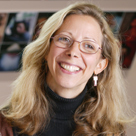Tuesday, February 3
| 10:30 a.m.–12:30 p.m. | “Living With Dying,” Presentation hosted by ICL member Jeanette Flaming, Montag Den We all live the path from birth to death, but we don’t like to think or talk about addressing our mortality. Yet, we have no choice; if not our own mortality, we experience the loss of loved ones. The purposes of the session today are to (1) talk about death and preparations, (2) to invite class members who have heard the jolting big “C” diagnosis (including terminal illness) an opportunity to talk with us about anything they would like to say and (3) give the rest of us an opportunity to listen and learn from members who are experiencing a challenging, transitional time. Hopefully, we can learn to increase our comfort in conversations about this difficult subject. Members planning to share are Gary Beck, Peter Rasmussen, Peter Ronai, and Derek Stables. Jeanette Flaming will facilitate. “Death changes us, the living. In the presence of death, we become more aware of life. It can inspire us to decide what really matters in life – and then to seek it.” Candy Lightner, founder of M.A.D.D. Resources: |
| 1:30 – 2:30 p.m. | "Interventional Radiology," Dr. Ken Hirasaki [Mike Gilbert], ***Ford 122*** [NOTE new venue]
|
| 2:30–3:30 p.m. | "Elder Law," Valerie J Vollmar [Peter Rasmussen], Ford 122
J.D. Willamette University, summa cum laude Valerie J. Vollmar writes and lectures extensively in the fields of estate planning, elder law and physician-assisted suicide. Her will and trust forms have been used widely by Oregon lawyers since 1984. Her physician-assisted death Web site is one of the most frequently visited sites on the topic. She is co-author of a trusts and estates casebook published in 2003 by West Group. Professor Vollmar is an Academic Fellow of the American College of Trust and Estate Counsel and was the founding chair of the Oregon State Bar’s Elder Law Section. She is former chair of the Oregon State Bar’s Estate Planning and Administration Section and has served on the executive committees of the Taxation Section and the Business Law Section. She served as co-chair of a committee whose work led to adoption of the Oregon Uniform Trust Code in 2005. A 1975 graduate of Willamette University College of Law, Professor Vollmar was comment editor for the Willamette Law Journal. From 1975 to 1977, she served as a judicial clerk for the Honorable Otto R. Skopil Jr., chief judge of the United States District Court for the District of Oregon. In 1977, she entered private practice and later became a partner with Clark, Marsh, Lindauer, McClinton & Vollmar in Salem, Ore. She came to Willamette University College of Law in 1984 as a visiting professor and joined the College of Law faculty in 1985. She currently teaches Trusts & Estates and Will & Trust Drafting, as well as the Trusts & Estates Clinic in the Clinical Law Program. She also has taught Federal Estate & Gift Tax, Elder Law, Property, and Professional Responsibility. She received the Oregon State Bar President’s Membership Service Award in both 1989 and 2005, as well as Willamette University’s Jerry E. Hudson Award for Excellence in Teaching in 1999. Professor Vollmar has graciously consented to the inclusion of her presentation on the ICL web site. View a PDF file of the Legal Aspects of End of Life slides. |
Thursday, February 5
| 10:30 a.m.–11:30 a.m. | History Video Series [Bob Muir], Montag Den Description TBA |
| 11:30 a.m.–12:30 p.m. | "Art Potpourri" [Sharon Wright], Montag Den Francie Witteman, Betty Swinkels, and Evelynn Smith will present their favorite art and artists. |
| 1:30 – 3:30 p.m. | "Oregon's Doctor to the World, Esther Pohl Lovejoy and a Life in Activism," Kimberly Jensen [Jyl McCormick], ***Ford 122*** [NOTE New venue]
Lovejoy's early life and career in the Pacific Northwest gave her key experiences and strategies to use for what she termed "constructive resistance," the ability to take effective action against unjust power. She took a political and pragmatic approach to what she called "woman's big job"-achieving a full female citizenship-and emphasized the importance of votes for women. In this engaging biography, Kimberly Jensen tells the story of this important western woman, exploring her approach to politics, health, and society and her civic, economic, and medical activism. Kimberly Jensen is Professor of History and Gender Studies at Western Oregon University. She received her Ph.D. in Women's and United States History from the University of Iowa in 1992. She teaches courses in 20 th century United States History, Gender Issues in Historical Perspective, Health, Medicine and Gender in Historical Perspective, and American Voices: Autobiography, Biography and Memoir in American History. |
Tuesday, February 10
| 10:30 a.m.–12:30 p.m. | "Invasive Species," Wyatt Williams [Sharon Wright], Kaneko
Wyatt Williams joined the Oregon Department of Forestry in September of 2012 and serves as the agency’s Invasive Species Specialist. He manages and coordinates projects focused on the detection, monitoring, and management of priority invasive species of forest ecosystems, including invasive plants, insects, and tree diseases. Primarily, he provides technical assistance to state and private landowners, develops strategies to prevent and mitigate damage by invasive species, conducts research and field investigations, and advises the Board of Forestry on issues related to invasive species of Oregon’s forests. Wyatt holds a PhD from Colorado State University where his research focused on the genetics and control of invasive plants. He has worked for the US Forest Service, USGS, and the Colorado Department of Agriculture as an entomologist and field technician focusing on invasive insects and plants. Wyatt has also worked in the private industry developing new pest monitoring and control technologies that have been implemented domestically and internationally. He holds a Master’s degree in biology from Boise State University and has conducted research on the Douglas-fir beetle and fungal associates of wood borers. |
| 1:30 – 2:30 p.m. | "Concrete Arrows Point the Way," Jinx Brandt , Ford 122
|
| 2:30–3:30 p.m. | "Helen," Willamette University Theater Dept [Deborah Ehlers], Ford 122
DESCRIPTION In this fresh take on Euripides’ tragicomedy, Helen never went to Troy but spent the war fought in her name in an Egyptian hotel room waiting for her husband Menelaus to come find her and take her home. In her odd exile, Helen receives visits from Io, a mythical figure who was once turned into a cow, and the goddess Athena, who informs her of the devastation that Helen’s empty image has wrought upon the world. Bewildered by her strange escape from her own story, even Menelaus’ final arrival cannot save Helen from the legend that has grown far larger than the woman who inspired it. Guest Director Michelle Seaton and students will present to ICL. |
Thursday, February 12
| 10:30 a.m.–11:30 a.m. | "Write Short," Sarah Evans [Lois Rosen], Kaneko
Sarah Evans has been a professional writer and editor for 15 years, working as a journalist before joining the Willamette University Communications office as a marketing and public relations writer. She also is editor of the monthly online magazine Salem Is (www.salemis.org), which tells stories about the people and culture of Salem. |
| 11:30 a.m.-12:30 p.m. | “A Visual Guide to the Universe: Probing the Cosmos,” Video lecture, Prof. David M. Meyer (Gary Beck), Kaneko
This semester we will be switching from the “Experiencing Hubble” series to this brand new course produced in conjunction with the Smithsonian. It is a much-updated discussion including developments that have occurred since the other series was produced. It also covers a broader range of subject matter. The first Lecture is entitled “Probing the Cosmos.” For the first time in human history, it has become possible to visualize and map a universe that is mostly invisible to the Earth-bound human eye. Observations of he night sky have now expanded beyond the Earth into space with a fleet of spacecraft that have ushered in a new age of cosmic discovery. In this updated course, you will explore the scientific stories behind some of he most spectacular space images obtained during the past 20 years. In this lecture you will be introduced to the key motivations and limitations in expanding the frontier of space exploration. |
| 1:30 – 2:30 p.m. | "How to blast holes in metals and call it science; Ultrafast lasers and ablation studies at Willamette University," Michaela Kleinert [Hardin King], Ford 122
Ultrafast lasers are pulsed lasers that deliver the energy of a lightbulb in just a trillionth of a second, making it possible to precisely interact with metals and other materials. This is relevant for many industrial applications that require high precision. For example, very clean and very small holes with sharp edges can be drilled. These lasers are also used to microstructure surfaces, a process that can alter the frictional properties of the material. For example, silicon can be made hydrophobic (water will just roll off it), which is of relevance for electronics that are silicon based. In this talk we will introduce you to the research we do here at Willamette University using a 10 picosecond, 20 Watt pulsed laser that was donated to MK by Electro Scientific Industries. Presenters: Alycia Stuart (senior), Peter Warrick (junior), [maybe Shelbi Jenkins (junior)], Michaela Kleinert (PI) Associate Professor of Physics, Department Chair Professional Associations: |
| 2:30–3:30 p.m. | "The Story of Human Language Video Series: Language Develops Beyond the Call of Duty," Prof. John McWhorter [Jinx Brandt], Ford 122
A great deal of a language’s grammar is a kind of overgrowth, marking nuances of life that many or most languages do without. Some languages require one to mark how one learned whatever one is saying; others mark possession differently, according to whether one refers to an object or a body part. Even the gender marking familiar from European languages is a frill, absent in thousands of languages. The theme is decoration over necessity. |
Tuesday, February 17
| 10:30 a.m.–12:30 p.m. | "Beethoven's Kaleidoscope: A Life in Variations," Dr. Diane Baxter [Solveig Holmquist], ***Smith Auditorium*** [Note Change of Venue]
Beethoven’s use of variations as a formal structure in his piano works is pervasive and profound. Using his piano music as a model, this session will explore examples of theme and variation form at Beethoven’s hands. It will culminate with the live performance of his Piano Sonata in E major, Op. 109. There is nothing regular or standard about this sonata. The opening movement is highly condensed and tightly structured. The middle movement is a rousing scherzo with copious use of counterpoint. The last movement is a set of six variations on a theme, a movement nearly twice as long as the previous two together. This variations movement is indicative [The poem quoted by Dr. Baxter near the end of her presentation was Beannacht, by John O'Donohue.] Our presenter is Diane Baxter, Professor of Music, Western Oregon University, DMA - University of Oregon (Piano Performance & Music History, 1985) Diane Baxter performs as a soloist, a chamber musician, and an orchestral pianist throughout the United States, in Canada, Japan and France. Her training is primarily from a long heritage of Hungarian piano teachers, including Béla Böszörményi-Nagy and György Sebök. Diane has worked recently with British pianist Paul Roberts, London-based artist Charles Owen, Washington DC's Alon Goldstein, and Swedish pianist Martin Sturfalt. Diane is the Principal Keyboard Artist for the Newport Symphony Orchestra. She has appeared as soloist with the Cascade Festival of Music Orchestra, the Western Oregon Symphony, the Newport Symphony Orchestra, and the Oregon Mozart Players. Diane is currently Professor of Music at Western Oregon University where she has received the Faculty Honors Award for Outstanding Creativity and the Mario and Alma Pastega Award for Excellence in Teaching. She regularly teaches courses in Ethnomusicology, Graduate Research Methods, Performance Anxiety, and Studio Piano. Diane’s article on music and the brain, “The Science of Artistry: The Fourth String,” was recently published in the international journal, Clavier Companion (November/December 2013). She is editor of The Oregon Musician, a journal for the Oregon Music Teachers Association. Dr. Baxter frequently gives workshops on performance anxiety for students and teachers, and adjudicates for piano competitions and festivals around the northwest. In March 2015 she will serve as principal adjudicator and keynote speaker, presenting “Stepping Into the Light: Advice for Performers” for the Woodley Competition in England. |
| 1:30 – 3:30 p.m. | "Gendered Labor Markets: A US and International Discussion," Tabitha Knight [Tom Hibbert], Ford 122
Professor Knight will provide the basic labor market model, discuss the role of occupational segregation, and establish the determinants of supply and demand. This discussion will conclude with the role of institutions and the policy implications of the model. Subsequently, Professor Knight will discuss gendered employment on an international scale, including a view of the current employment gap in regions across the world, and will present conclusions and policy implications from her related work. Bio: Knight comes to Willamette from Colorado State University, where she successfully defended her doctorate in May. Her recently defended dissertation is titled, “The Gender Dynamics of Public Finance: A Chinese and Cross-Country Analysis.” A feminist macroeconomist, Knight's expertise is in the intersection of economic development, international trade and finance, and the economics of race and gender. She currently has a paper evaluating the effects of public spending on women and men’s relative welfare (as measured by employment growth) in China under review at Feminist Economics. She earned her BS in business administration (finance) from California State University, Sacramento. Her training in heterodox theories will be a great resource as the department continues to develop the revised major. Knight is married, and she enjoys working in her wood shop, playing with her dog Sarah, snowboarding and watching sports programming in her free time. Two years ago, she learned to ice skate to play ice hockey in a recreational league. |
Thursday, February 19
| 10:30 a.m.–12:30 p.m. | "Great Decisions: Syria's Refugee Crisis," [Jeanette Flaming], Kaneko Syrians have for a century welcomed over a million refugees from Armenia, Palestine, Iraq and other countries around the region. Now, thanks to a multiyear civil war, they are on track to become the source of the world's largest refugee population in a matter of months. As Jordan, Lebanon, Turkey and other neighbors strive to accommodate the millions of Syrians, the risk of allowing Syrians to become dependent on emergency aid and forming a "lost generation" remains. Ultimately, though, the safety of displaced Syrians rests with the whole international community. We will primarily use small groups for this discussion as we will be in Kaneko which will accommodate this well. Please read the material and prepare a question and a comment for discussion in your small group. If you do not have the text, you may check on or on any other source. Jeanette Flaming and Don Gallagher will lead this session. |
| 1:30 – 3:30 p.m. | "Black Poetry," Mindy Spencer [Cy Eberhart], Ford 122
Mindy Spencer was born in Minneapolis, MN and raised in Detroit, MI. In Detroit she attended Wayne State University where she earned a B.A. in Spanish and later an M.A. in English. After one year teaching in Los Angeles, CA, she returned to Detroit where she spent the next 29 years in the Detroit Public Schools, teaching mainly Spanish to high school students. At the tender age of 52 she retired and, after seeing the Pacific Northwest in 1997 and falling in love with its beauty, she was able to move to Oregon in 2003. Here in Oregon she keeps very busy as a volunteer, reading to Latino children at the library in Lincoln City and tutoring ESL students at the Oregon Coast Community College in Newport. She is also a 10 year member of the Oregon Coast Learning Institute, an organization based on our ICL. The presentation you will hear was first done at OCLI last February. |
Tuesday, February 24
| 10:30 a.m.–11:30 a.m. | "Part I: Coming Apart at the Seams: How statehood for Oregon figured into the national debate over slavery," Tom Marsh [Don Taylor], Kaneko
Oregon became a territory of the United States in 1848; statehood would come 11 years later. The issue of Oregon becoming a state was part of the national debate over slavery and how white Americans felt about living with free Blacks. So, as the Union slowly unravelled, Oregonians stood in the wings, wondering if they wanted to be in the Union. And what complicated matters even more was that Oregon’s political leaders and voting electorate regularly adopted policies which confounded Congress. Biography: *Graduate (BS and MS), University of Oregon. Marsh and his wife, Judy, live in South Salem. |
| 11:30 a.m. - 12:30 p.m. | "Part II: Oregon, the Ku Klux Klan, the election of 1922, and the legislature of 1923, " Tom Marsh [Don Taylor], Kaneko
How did Oregon, a far west state with an overwhelmingly white population, become enmeshed in the national resurgence of the Ku Klux Klan? How much of a factor was the Klan in both the election of 1922 and the legislature of 1923? |
| 1:30 – 3:30 p.m. | "GMO’s in Agriculture," Briana Lindh , Ford 122
Associate Director of the Sustainability Institute at Willamette University |
Thursday, February 26
| 10:30 a.m.–12:30 p.m. | "The Luck of the 9th: Daily Life in the Continental Army From the Diary of Sgt. Simon Giffin and Others of the 9th CT Regiment.," Phil Giffin [Bob Muir], Kaneko Part I: The recent discovery of a distant ancestor’s Diary, Regimental Record Book, musket, sword, powder horns, buttons, sash, and a trove of papers from other companions opens a new window on the Continental Army and the American Revolution. Follow the life of Simon Giffin (1741-1820) growing up in the home of strangers as an apprentice to a spinning wheel maker, marriage and a “Great Awakening” divorce, remarriage and six years of separation from his young family with the Continental Army. Historical research and analysis of original documents reveals the relative good fortune of the Regiment from Wethersfield, CT. They were well supported and supplied by their home town, well led by an extraordinary local man and former ADC to General Washington (Col. SB Webb), well equipped (homespun linens, British crimson winter coats, and French Charleville muskets), and generally positioned to fight closer to home (NY, NJ, RI) where they were sent home to spend the harsh winters of Morristown and Valley Forge with their families. Reflect on the extraordinary resources and commitment of a small community in a thinly populated, undeveloped, disorganized, and fractious nation as it declares war on the most powerful “big power” of its day, Great Britain. Part II: Listen to the voices of the Regiment as they hiked endless miles and camped in summer heat, snowstorms, rain, and mud, fought in several battles, lost casualties to cannon balls, hardship, and disease, and remained steadfast to the end. In a letter to his mother, seventeen year old Private Elihu Phelps describes the chaos and horror of Bunker Hill. Before the Connecticut Legislature, Simon’s mother-in-law reports the death of her three sons requesting their back pay for the family. In a letter Dr. Albigence Waldo reports on the abominable condition of the Army at Valley Forge. In his Diary, Simon records the daily life of the Regiment as it hikes endless miles to help turn back British assaults on Philadelphia, the Hudson River, and Rhode Island. Simon describes raiding enemy camps from whale boats in ferocious storms on the Hudson River and across Long Island Sound; and the fight for Rhode Island in a hurricane. Dine in the snow with the 9th on slabs of barrel beef (taken raw and bloody from barrels) and singed over an open fire along with “fire cakes” (flour and water patties) cooked on hearth stones. Suffer though the dangers of small pox inoculations, and medicate the inevitable “itch” with a hot poultice of sulfur and lard. Sleep on fir boughs under trees on the banks of the Hudson River in winter storms. March and clash with the enemy in the stifling heat and humidity of New Jersey summer days at New Brunswick and Springfield. Hang deserters, spies, and thieves who steal from widows. Watch as the first professional American Army emerges from the chaos and begins to “hold its own.” Listen as our Sergeant returns to civilian life and leaves us with a thoughtful letter of his meditations on life and love. Personal Biography: Raised in Corvallis, OR. Graduate Georgetown University BS Foreign Service 1965; Japanese Language training Waseda U. Tokyo; George Fox U. MAT 2001. Captain US Army 1966-68. International Marketing Executive 1970-1995. Social Studies Teacher @ David Douglas High School Portland, OR 2001-2011. Published stories in Manitoba History magazine “Annie’s War 1914-1918” June 2007; The Men of Princess Patricia Regiment 1915 October 2006; and Maud’s Diary of Ireland and Manitoba 1798-1874” Winter 2011. |
| 1:30 – 3:30 p.m. | "Medical Anthropology," Joyce V. Millen [Tom Zook], Ford 122
Dr. Millen will use her own work in infectious disease and case studies such as the current Ebola outbreak to demonstrate the work of medical anthropologists in the field. Associate Professor of Anthropology, Joyce Millen, has been teaching medical anthropology and African Studies at Willamette University since 2005. Prior to joining the Willamette faculty she was Director of the Institute for Health and Social Justice of Partners In Health in Boston, MA where she also taught in the Department of Social Medicine at Harvard Medical School. In addition to a doctorate in medical anthropology, she also holds degrees in public health and international relations. She has conducted extensive ethnomedical and epidemiological research in West Africa, particularly in Senegal where she lived for over eight years. Millen’s current research explores “diasporas for development” within the specific context of Africa's crisis in human resources for health. |


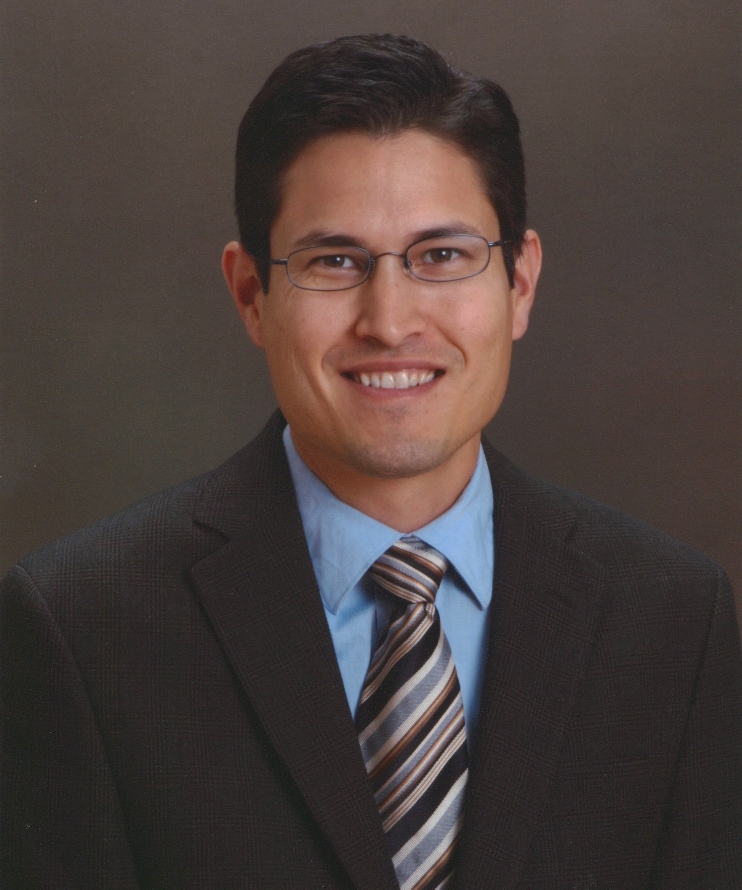 Dr. Hirasaki is originally from Texas, where he received his undergraduate degree from Lamar University in Electrical Engineering. He attended medical school at the University of Texas in Houston and completed a radiology residency at Duke University. He also completed a fellowship in Vascular and Interventional Radiology at Duke University. Following his fellowship, Dr. Hirasaki joined Salem Radiology Consultants in 2008.
Dr. Hirasaki is originally from Texas, where he received his undergraduate degree from Lamar University in Electrical Engineering. He attended medical school at the University of Texas in Houston and completed a radiology residency at Duke University. He also completed a fellowship in Vascular and Interventional Radiology at Duke University. Following his fellowship, Dr. Hirasaki joined Salem Radiology Consultants in 2008. 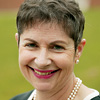 Our presenter is Valerie J. Vollmar, Professor of Law
Our presenter is Valerie J. Vollmar, Professor of Law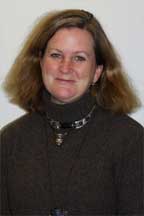 Esther Clayson Pohl Lovejoy, whose long life stretched from 1869 to 1967, challenged convention from the time she was a young girl. Her professional life began as one of Oregon's earliest women physicians, and her commitment to public health and medical relief took her into the international arena, where she was chair of the American Women's Hospitals after World War I and the first president of the Medical Women's International Association. Most disease, suffering, and death, she believed, were the result of wars and social and economic inequities, and she was determined to combat those conditions through organized action.
Esther Clayson Pohl Lovejoy, whose long life stretched from 1869 to 1967, challenged convention from the time she was a young girl. Her professional life began as one of Oregon's earliest women physicians, and her commitment to public health and medical relief took her into the international arena, where she was chair of the American Women's Hospitals after World War I and the first president of the Medical Women's International Association. Most disease, suffering, and death, she believed, were the result of wars and social and economic inequities, and she was determined to combat those conditions through organized action.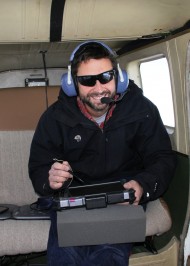 Wyatt Williams will tell us about the plants and animals we do not want in our own environment.
Wyatt Williams will tell us about the plants and animals we do not want in our own environment. In the 1920s, Charles Lindberg used his considerable fame (and some of his fortune) to convince the US Government to invest in an airmail postal delivery system. However, without radar and other navigational devices we take for granted today, these innovators had plenty of problems to solve before they could get the operation "off the ground." Come hear what it took to guide these planes across the continent and how that laid the foundation of our air transport system today.
In the 1920s, Charles Lindberg used his considerable fame (and some of his fortune) to convince the US Government to invest in an airmail postal delivery system. However, without radar and other navigational devices we take for granted today, these innovators had plenty of problems to solve before they could get the operation "off the ground." Come hear what it took to guide these planes across the continent and how that laid the foundation of our air transport system today. Adapted by Ellen McLaughlin
Adapted by Ellen McLaughlin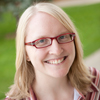 From age-old aphorisms to modern-day Tweets, we will explore the concept of short-form writing, including the idea of telling our own stories in just a few words.
From age-old aphorisms to modern-day Tweets, we will explore the concept of short-form writing, including the idea of telling our own stories in just a few words.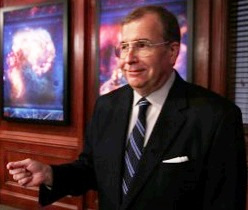
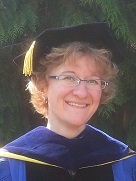
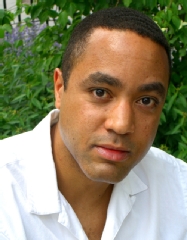
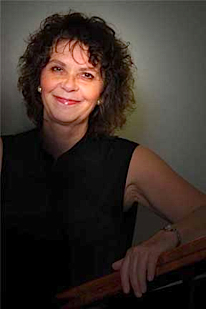
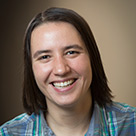 With the recent presidential address regarding the current gender-based wage gap and the notion of the right to equal pay, we may be led to believe that blatant discrimination itself is at the root of this gender gap. While this factor could play a significant role in the gap, unequal institutional practices and social norms may also be significant contributors to the gap via their influences on occupational segregation and its subsequent impacts on relative wages.
With the recent presidential address regarding the current gender-based wage gap and the notion of the right to equal pay, we may be led to believe that blatant discrimination itself is at the root of this gender gap. While this factor could play a significant role in the gap, unequal institutional practices and social norms may also be significant contributors to the gap via their influences on occupational segregation and its subsequent impacts on relative wages. 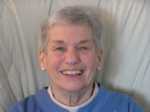 In high school and university we all became familiar with Edgar Allen Poe, Walt Whitman Robert Frost and many other poets. But, how many of you know the American poets Nikki Giovanni, Paul Laurence Dunbar, or Langston Hughes? These are Black American poets who are just as talented and worthy of recognition as any of the White poets of the United States I will present the works and lives of eight Black poets to you in honor of Black History Month. I know you will be entertained, but, hopefully, you will also be inspired to become more familiar with the poets I will present and others that I will recommend at the end of my presentation.
In high school and university we all became familiar with Edgar Allen Poe, Walt Whitman Robert Frost and many other poets. But, how many of you know the American poets Nikki Giovanni, Paul Laurence Dunbar, or Langston Hughes? These are Black American poets who are just as talented and worthy of recognition as any of the White poets of the United States I will present the works and lives of eight Black poets to you in honor of Black History Month. I know you will be entertained, but, hopefully, you will also be inspired to become more familiar with the poets I will present and others that I will recommend at the end of my presentation.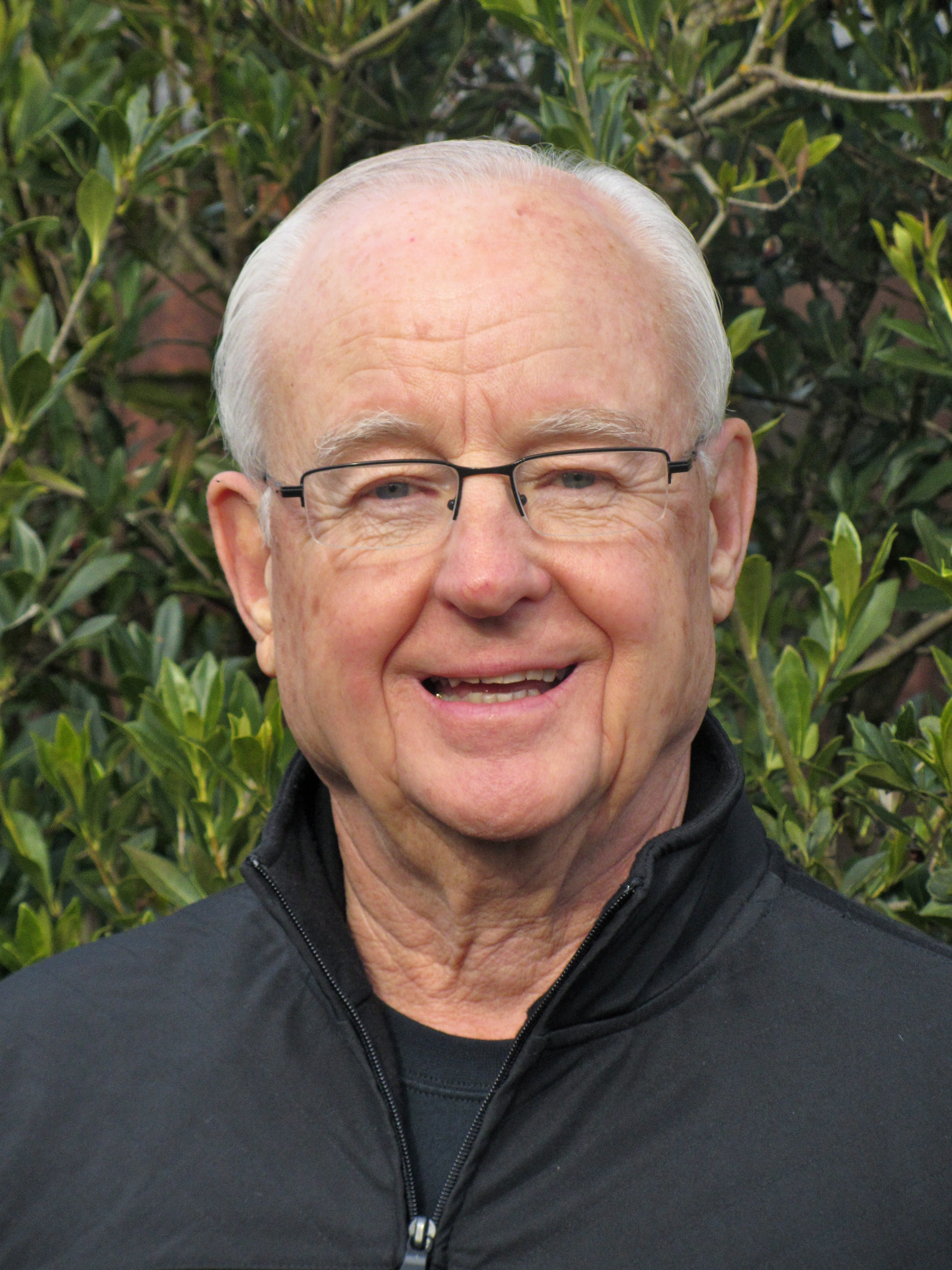 Part I: Coming Apart at the Seams: How statehood for Oregon figured into the national debate over slavery
Part I: Coming Apart at the Seams: How statehood for Oregon figured into the national debate over slavery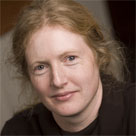 Dr. Briana Lindh will give a presentation related to her teaching on GMO's in agriculture. The presentation will attempt to demystify genetic engineering by explaining how it does and does not differ from other approaches in plant breeding and from the natural processes that shape genomes.
Dr. Briana Lindh will give a presentation related to her teaching on GMO's in agriculture. The presentation will attempt to demystify genetic engineering by explaining how it does and does not differ from other approaches in plant breeding and from the natural processes that shape genomes.